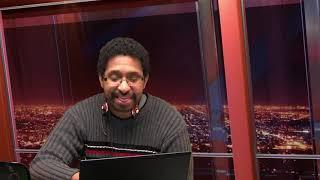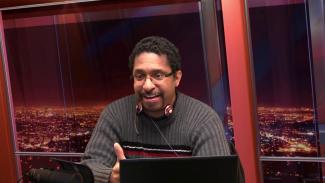How did God accomplish the unthinkable for humanity? What did the prophet Isaiah predict about the nature of the Messiah? How can we reconcile the mighty ruler with the suffering servant? How did Jesus fulfill these prophecies in the New Testament? Why was it so difficult for many to accept? In what way was Jesus our substitute?
Topic: Prophecy
To see more broadcasts select show names, a year, or all video media.How can we understand Bible prophecy? What is the historicist approach? How do we know when to apply the day-year principle? What is the difference between symbols and typology? How did Bible writers and key Biblical figures, including Jesus, demonstrate belief in these principles of interpretation? How do they help us understand the times we live in today?
Is the history of the Bible reliable? Did people like Jesus, David, Solomon, Daniel, Nebuchadnezzar, Abraham, or Moses really live? How can archaeology address the claims of secular critics that the Bible is a myth or work of fantasy? How do we know the events really happened or that these people really lived? How is higher criticism playing a role in secular public education shaping the minds of our youth today?
What is the relationship between science and the Bible? Did the Bible ever teach a flat earth? Did the Creation story borrow from ancient myths? Can we be certain about Biblical history or when that history took place? How did the New Testament authors and Jesus, Himself, view the Creation account?
Why do we need to interpret scripture? Is there a right or wrong way? Can scripture be understood correctly? What is hermeneutics? What biases might we have in culture, language, presuppositions, or our personal lives that make it difficult to understand the Bible in its proper context? How does our sinful and fallen nature play a role? Who was the first revisionist?
How do we interpret the Bible using the Bible? Can scripture be understood or is it too ambiguous? Is there unity in scripture? How does unity impact how we interpret scripture? How did Jesus and the Bible writers view scripture? Can extra Biblical material be used? Do prophets need to be apart of the Biblical cannon?
Can we trust the Bible? How do we know it is divinely inspired? What role did God play in the process that produced the Bible? What claims does the Bible make about itself?
How can we understand the Battle between the kings of the North and South? What is common between Daniel 2, 7, 8, 9, and 11 and what similarities do we find in Revelation? What does God say about end time events? How does Daniel 11 expand our knowledge of prophetic events?
What does Daniel learn about the cosmic conflict in Daniel 10? What does this teach us about spiritual warfare today? Why did Daniel pray for 21 days if God was listening from the very first day? What role did Jesus play in this cosmic conflict? Why is Gabriel held up from answering Daniel’s prayer? Why was Daniel so weak in his encounter with a heavenly being and why was he touched 3 times?
What part of the vision did Daniel not understand in Daniel chapter 8? How does Gabriel make this clear in chapter 9? On what basis does Daniel appeal to God on behalf of the people? What events will happen in the 70 Week prophecy? How did this tie in with Jesus’ conversation with Peter about forgiving his brother? How did this prophecy predict the date of the first coming of the Messiah?
What is the cleansing of the sanctuary? How can an understanding of the sanctuary service o the Old Testament help us understand Jesus’ High Priestly ministry? In what way did the little horn power attack the daily ministration of Christ? How does this affect us today? What part of this vision doesn’t Daniel understand? What is meant by the 2300 day prophecy in Daniel 8?
What did Daniel predict about end time events. What end time power will persecute God’s people? How will God judge? Where are we now in prophetic history? How were Gods times and laws changed? How long will this persecuting power last? What is the focus of Daniel 7.












